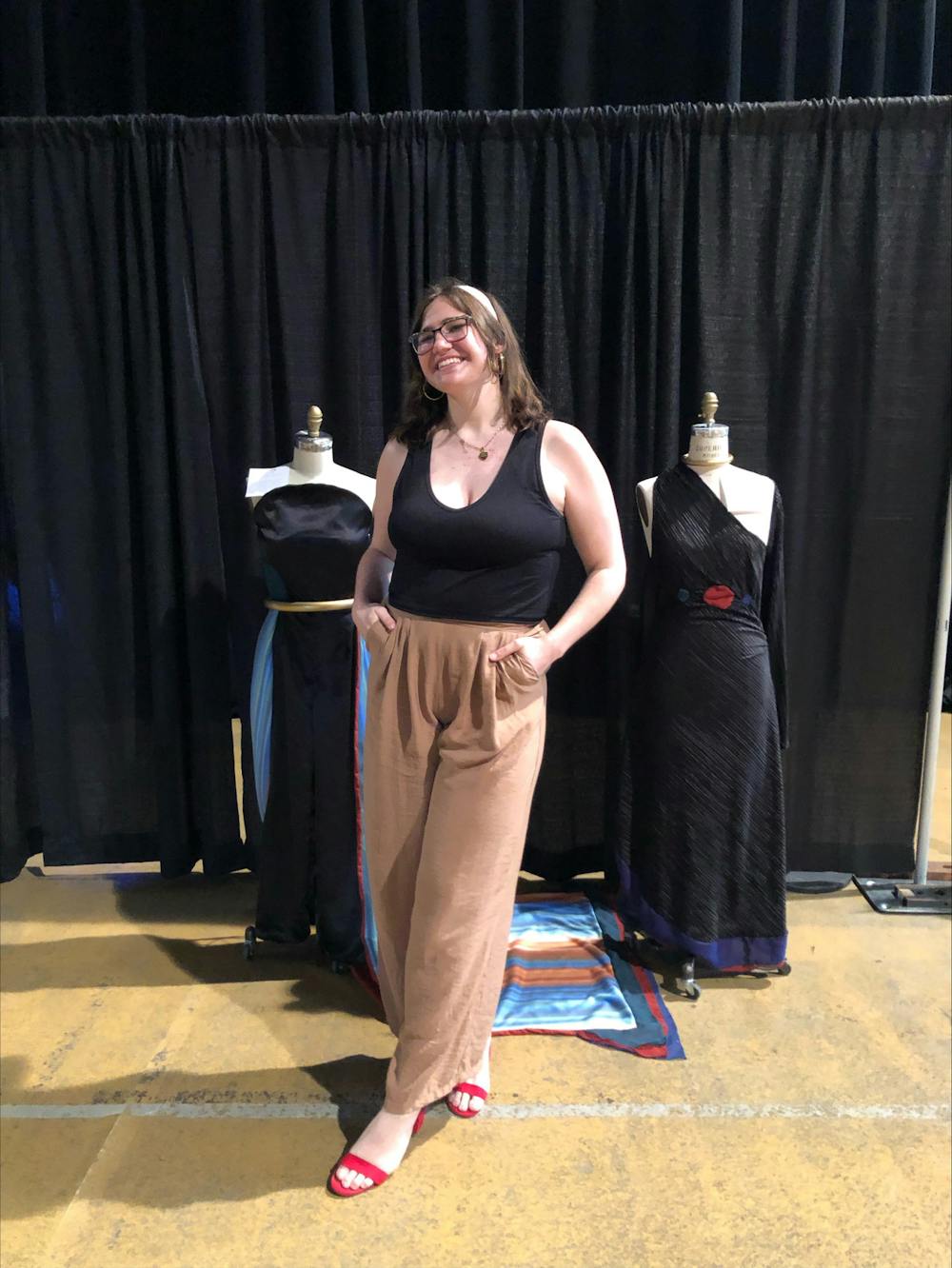CMU student's designs redefine safety for the elderly

Central Michigan University graduate student, Kaleigh Slot, hopes to reduce the risk of injuries of falls with her clothing meant to protect elderly women.
Each year, more than one out of four Americans aged 65 or older falls, making it the primary cause of injury for that age group according to the Center for Disease Control and Prevention.
Slot had first come to CMU in the fall of 2019 as an undergraduate to study fashion design.
Originally from Charlotte, Michigan, Slot said she was initially unsure which path to pursue after high school until she heard about CMU’s fashion design program – more specifically the Threads Fashion Show.
The Threads Fashion Show is an annual, student-run production at CMU that gives current students and faculty the chance to showcase their fashion designs.
“I was like, 'Oh, that’s neat,'” she said. “So, if I came here, at least I could do that. But then I went more into the program and I realized that the program’s really well done. So that’s when it really clicked that I wanted to do this.”
Slot has since decided to pursue her master’s degree in fashion, merchandising and design where she has spent time focusing on modern styles such as 3D printing in fashion.
Slot said she has taken inspiration from many fashion designers, particularly Iris Van Herpen, a Dutch designer who specializes in incorporating 3D printing into her designs.
However, for her latest clothing designs, Slot drew the inspiration for the designs from her own grandmother who she said suffered from injuries after a fall.
“She had to go to the hospital, and she suffered from other falls,” she said. “So I think she was kind of the inspiration for all of this and looking at family friends who also have been in similar situations, it really inspired just thinking about a way that I could, you know, help keep them safe.”


Slot’s design contains discrete padding in areas that are most vulnerable to injuries and also includes built-in emergency call devices located in the collar and waistband which are triggered by pressing down and holding.
Slot said she had chosen to go for a style typically worn by older women.
“Where you see the quilting is actually where there would be hidden padding,” she said. “So, it’s in the hips and the wrists, and then on the pants from the knees down. Just common areas where falls can occur."
While padding meant to protect the elderly already exists, her design is less bulky and more stylish Slot said.
“You can buy hip pads,” she said. “They aren’t very stylish, they’re just added protection. With those, you can for sure see the bulk and it won’t protect them as discreetly as this would.”
In November Slot’s designs garnered attention at the International Textile and Apparel Association Annual Conference in Baltimore, Maryland.
While Slot couldn’t attend in person, several of her professors were able to, and they set up her poster presentation. Slot said she had received a lot of positive feedback from other attendees.
“A lot of people said that they know family (members) who’s experienced falls, and they thought this would be great for them,” she said.
Slot hopes her designs can help to give family members and elderly women more peace of mind.
"I feel like it would give a sense of security when elderly women go out or when they're just around the house, especially if they're alone, then they know that in case a fall were to happen, it wouldn't be a serious injury, and then they could still get the help that they need," she said.
Slot said she would like to continue to revise her current research designs and potentially collaborate to make prototypes of the designs.
Looking ahead, she hopes to work in apparel design after graduation, creating designs for a diverse range of individuals.
While her primary focus may be more on mass fashion, she said she could also see herself continuing to create tailored solutions for specific customer needs.
“I still like the idea of doing this and researching for specific customers and just making their life easier and better,” she said. “So they can look a little bit more confident in what they wear.”
Renae King is also a reporter at WCMU Public Radio, where this story first appeared.



